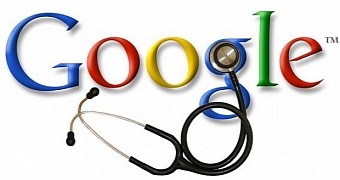These days, a whole lot of people turn to the Internet when feeling a bit under the weather. A few clicks later, they come up with a self-diagnosis and even a treatment for their supposed health trouble.
According to a recent report produced by researchers with the Queensland University of Technology, about 35% of the US' adult population has so far self-diagnosed a medical condition with the help of information found online at least once.
Besides, it was earlier this year that the Google team admitted that, of the roughly 100 billion searches facilitated by the search engine on a monthly basis, 1 in 20 concerned health-related information.
“People commonly turn to ‘Dr Google’ to self-diagnose illnesses or ailments,” explains Queensland University of Technology researcher Guido Zuccon. Just like Google, many other search engines are often used by people for self-diagnosis.
Dr. Google is not as reliable as people think
Specialist Guido Zuccon and fellow researchers warn that, too often, online searches focusing on one or more health symptoms cough up misleading results. Otherwise put, search engines are not all that reliable when it comes to self-diagnosis.
In fact, they can even cause more harm than good, should people go on to follow a treatment for a medical condition they don't really have and only think that they do.
In a series of experiments, the scientists tested the effectiveness of search engines Google and Bing. They found that, of the first 10 results returned by these engines when used to diagnose health trouble, merely 3 were reliable enough to consider.
“Our results revealed only about three of the first 10 results were highly useful for self-diagnosis and only half of the top 10 were somewhat relevant to the self-diagnosis of the medical condition,” said researcher Guido Zuccon.
What this means is that somebody suffering from a common head cold can end up thinking that they have a brain cancer tumor of sorts. “Our findings suggest it is not the best option for trying to find out what's wrong with you,” Guido Zuccon stressed.
Why search engines deliver the wrong diagnosis
In the report detailing their work, the Queensland University of Technology team explains that the reason search engines often lead people to a wrong diagnosis is that they are designed to show the more popular pages first.
Since pages concerning brain cancer are more popular than pages on common cold symptoms, it's these ones that users are made to see. The good news is that this problem can be solved by upgrading search engines and having them generate more useful pages.
Interestingly, the specialists say that user bias is also to blame for instances of misdiagnosis. Plainly put, some folks are hardwired to assume the worst or maybe are too optimistic and so pick and choose diagnoses depending on their personality.

 14 DAY TRIAL //
14 DAY TRIAL //